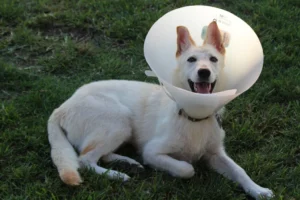Have you ever wondered why your neutered male cat still exhibits mating behaviors? Let’s explore the reasons behind this seemingly puzzling behavior.
Neutering a male cat is often thought to eliminate mating behaviors, but some cats may still try to mate. This can be attributed to various factors such as residual hormones, learned behaviors, or even medical issues. Understanding why your cat is displaying these behaviors can help you address them effectively.
Residual Hormones:
Even though your male cat has been neutered, residual hormones could still be lingering in his system, pushing him to exhibit mating behaviors. Neutering may not completely eliminate all hormones responsible for mating behaviors, such as testosterone. These leftover hormones can drive your cat to continue showing interest in mating, even though he cannot reproduce.
Moreover, the presence of residual hormones can vary from one cat to another. Some cats may metabolize these hormones quicker, while others may take longer, affecting how long they continue to display mating behaviors after being neutered. If you notice your cat trying to mate despite being neutered, residual hormones could be a significant factor influencing his behavior.
Additionally, it’s essential to provide your cat with plenty of mental and physical stimulation to help manage these behaviors effectively. Engage him in interactive play sessions, offer environmental enrichment, and ensure he feels secure and comfortable in his surroundings. By addressing residual hormones and providing a stimulating environment, you can help reduce your neutered male cat’s urge to mate.
Learned Behaviors:
Another reason why your neutered male cat might be trying to mate could be due to learned behaviors acquired before he was neutered. Cats are creatures of habit and might continue to exhibit mating behaviors they learned before their neutering procedure.
For instance, if your cat learned to display mating behaviors, such as mounting or vocalizing, before being neutered, he may continue to do so out of habit even after the procedure. These learned behaviors can persist over time, causing your cat to act as if he wants to mate, despite the physical impossibility of reproducing.
To help manage learned behaviors in your neutered male cat, it’s crucial to redirect his focus to more appropriate activities. Engage him in interactive play, provide scratching posts, and create a stimulating environment to keep his mind occupied. With patience and consistency, you can help your cat unlearn these mating behaviors acquired before neutering and redirect his energy towards healthier outlets.
Medical Reasons:
If your neutered male cat is attempting to mate, it could be due to underlying medical issues. Urinary tract infections can cause discomfort and lead to unusual behaviors, including mounting. Additionally, hormonal imbalances can sometimes occur even after neutering, influencing your cat’s mating instincts. It’s essential to consult your veterinarian to rule out any potential medical causes for this behavior. Regular check-ups and proper medical care can help address these issues and ensure your cat’s well-being.
Environmental Factors:
Various environmental factors can play a role in why your neutered male cat is displaying mating behaviors. The presence of intact animals in the vicinity can trigger your cat’s instincts, causing them to exhibit mating behavior. Stress and anxiety can also contribute to these behaviors, as cats may seek comfort in familiar actions even after being neutered. Providing a calm and secure environment for your cat, along with enrichment activities and proper socialization, can help alleviate these behaviors. Additionally, ensuring your cat has plenty of mental and physical stimulation can redirect their focus away from mating tendencies towards healthier outlets.
Extra Tip:
When dealing with environmental factors influencing your cat’s mating behaviors, consider creating a stimulating environment. Interactive toys, climbing structures, and regular playtime can help keep your cat mentally engaged and physically active, reducing the likelihood of them trying to mate.
Behavioral Modification Techniques:
If your neutered male cat is showing signs of mating behaviors, such as yowling or mounting, there are ways to help discourage these actions. First off, make sure to provide plenty of environmental enrichment to keep your cat mentally stimulated and physically active. Interactive toys, scratching posts, and window perches can all help keep your feline friend entertained and prevent boredom that may lead to mating behaviors.
Positive reinforcement is also key in modifying your cat’s behavior. Whenever your cat engages in positive behaviors, such as playing nicely or using a scratching post, be sure to reward them with treats or affection. This will help reinforce these behaviors and discourage the mating behaviors you want to eliminate.
Additionally, consider providing your cat with a safe space away from outdoor cats or other potential triggers for mating behaviors. Creating a calm and stress-free environment for your cat can help reduce the likelihood of these behaviors occurring.
Remember, consistency is key when it comes to modifying your cat’s behavior. With patience and positive reinforcement, you can help discourage mating behaviors in your neutered male cat.
Helpful Tip: Consider consulting with a professional animal behaviorist for personalized advice on modifying your cat’s mating behaviors.
Seeking Veterinary Advice:
If your neutered male cat is displaying mating behaviors, it’s essential to consult with a veterinarian to rule out any underlying medical issues that may be causing these actions. While neutering typically reduces mating behaviors in male cats, there are instances where medical conditions, such as hormonal imbalances or urinary tract infections, can contribute to these behaviors.
Your veterinarian can perform a thorough physical examination and recommend any necessary tests to determine if there are any underlying health concerns at play. They can also provide guidance on behavioral modification techniques tailored to your cat’s specific needs.
Remember, addressing any potential medical issues is crucial in ensuring the overall health and well-being of your cat, so don’t hesitate to seek advice from a professional if you have concerns about your cat’s mating behaviors.
Helpful Tip: To learn more about the importance of regular veterinary check-ups for your cat, check out the American Veterinary Medical Association’s guidelines on preventive care for pets.
Why is My Neutered Male Cat Trying to Mate?
Neutered male cats may still exhibit mating behaviors due to their instincts. Even though they can no longer reproduce, they may still try to mate due to hormonal urges. This behavior can be frustrating for cat owners, but it’s essential to understand that it’s a natural instinct for cats, and it doesn’t mean they are unhappy or unfulfilled.
Unique Insight: Signs Your Neutered Male Cat May be Attempting to Mate
- Mounting Behavior: Your cat may try to mount objects or other pets in your home.
- Vocalization: Excessive howling or yowling can be a sign of mating behavior.
- Spraying: Your cat may spray urine to mark their territory, a common mating behavior.
Conclusion:
Understanding why your neutered male cat tries to mate can help you manage this behavior more effectively. Remember, it’s crucial to be patient and provide a stimulating environment for your cat to reduce mating instincts. By staying informed and showing empathy towards your furry friend, you can navigate this challenging behavior with compassion and understanding.
Alex, a passionate animal lover, has experience in training and understanding animal behavior. As a proud pet parent to two dogs and three cats, he founded AnimalReport.net to share insights from animal experts and expand his knowledge of the animal kingdom.




